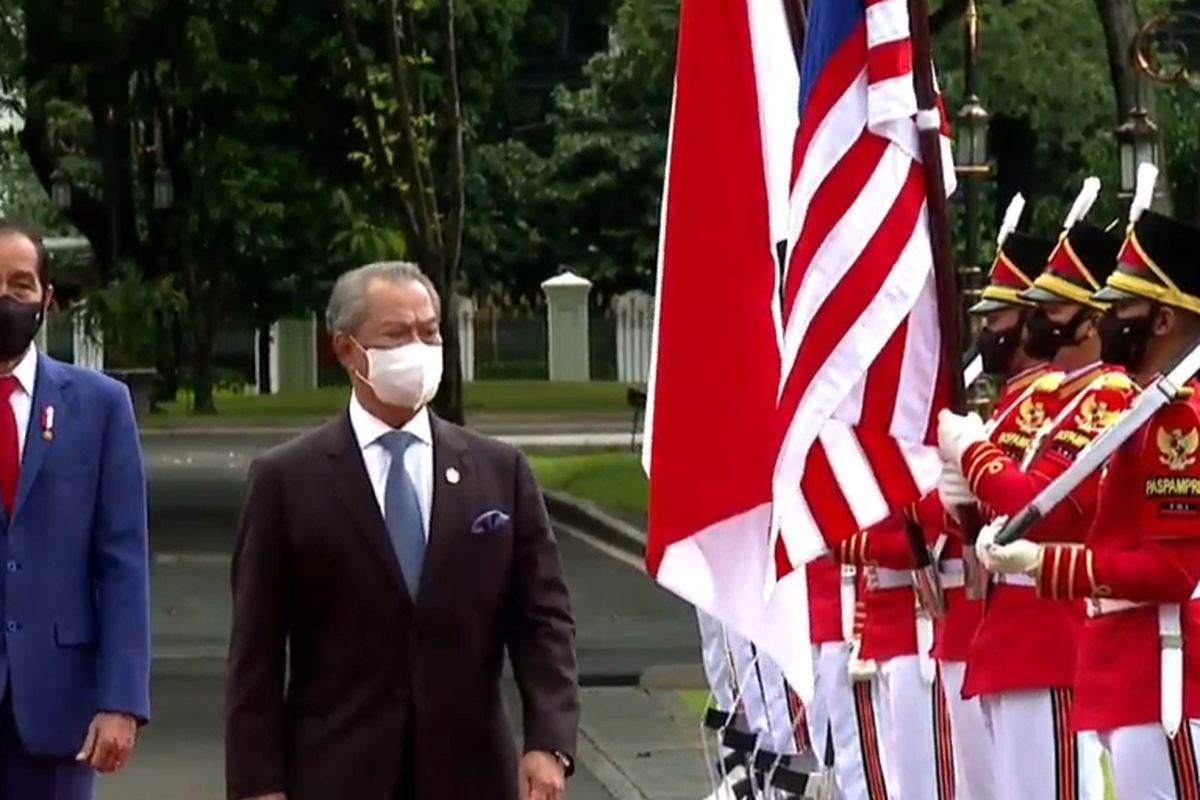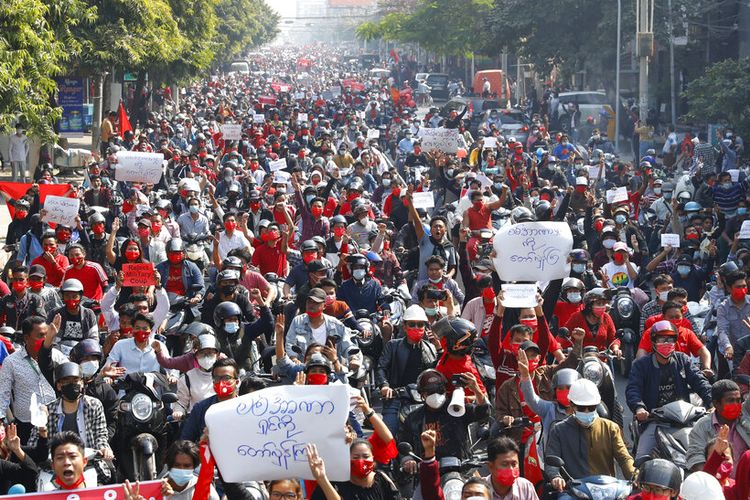
Democratic backsliding amid Covid-19
Entrenched elites clinging to power is not only an issue in Myanmar and Thailand. In some other Southeast Asian countries, authoritarian trends were evident long before the coronavirus outbreak, but some leaders are using the spread of Covid-19 as an opportunity to solidify their grip on power under the pretense of fighting the pandemic.
For the first time in more than half a century, Malaysia's once-peripheral king declared an eight-month nationwide state of emergency on January 12 in the hopes of reining in a surging coronavirus outbreak — a move that bolsters embattled Prime Minister Muhyiddin Yassin's vulnerable hold on power amid calls for an early election.
"Muhyiddin's government would probably have fallen had he not used Covid-19 to avoid calling Parliament and then established a state of emergency," Gregory B. Poling, senior fellow for Southeast Asia and director of the Asia Maritime Transparency Initiative at the Washington-based Center for Strategic and International Studies, told DW.
The pandemic has also led to a "worrying deterioration in civil-military balance in Indonesia, increasing human rights abuses in the Philippines, a further crackdown on opposition voices in Cambodia, and helped turn Thailand into a powder keg with the faux-democratic leadership facing off against a broad-based protest movement," Poling said.
Vulnerable to authoritarian tendencies
William Case, professor and head of the School of Politics, History and International Relations at the University of Nottingham Malaysia Campus, said the setbacks are "probably most disappointing" in countries like Indonesia and the Philippines where democracy had appeared to make the most progress but has been undermined by "sociopolitical intolerance and hideous human rights violations."
The recent chaos in the presidential handover of power in one of the world's leading democracies, the United States, is a clear demonstration of how vulnerable democracy can be too authoritarian tendencies, not just in Southeast Asia.
But while completing democratic transitions has proved difficult, the real challenge will be consolidating democracy, by strengthening institutions that ensure effective checks and balances on power — "hard, lengthy work that almost always involves setbacks and backsliding," Poling said.
"What is unclear is whether Southeast Asia is in a long-term spiral toward authoritarianism, or if these are just temporary setbacks in countries like Indonesia, the Philippines, Malaysia, and perhaps Thailand, which can still find their way through to a more democratic future."
Simak breaking news dan berita pilihan kami langsung di ponselmu. Pilih saluran andalanmu akses berita Kompas.com WhatsApp Channel : https://www.whatsapp.com/channel/0029VaFPbedBPzjZrk13HO3D. Pastikan kamu sudah install aplikasi WhatsApp ya.

































